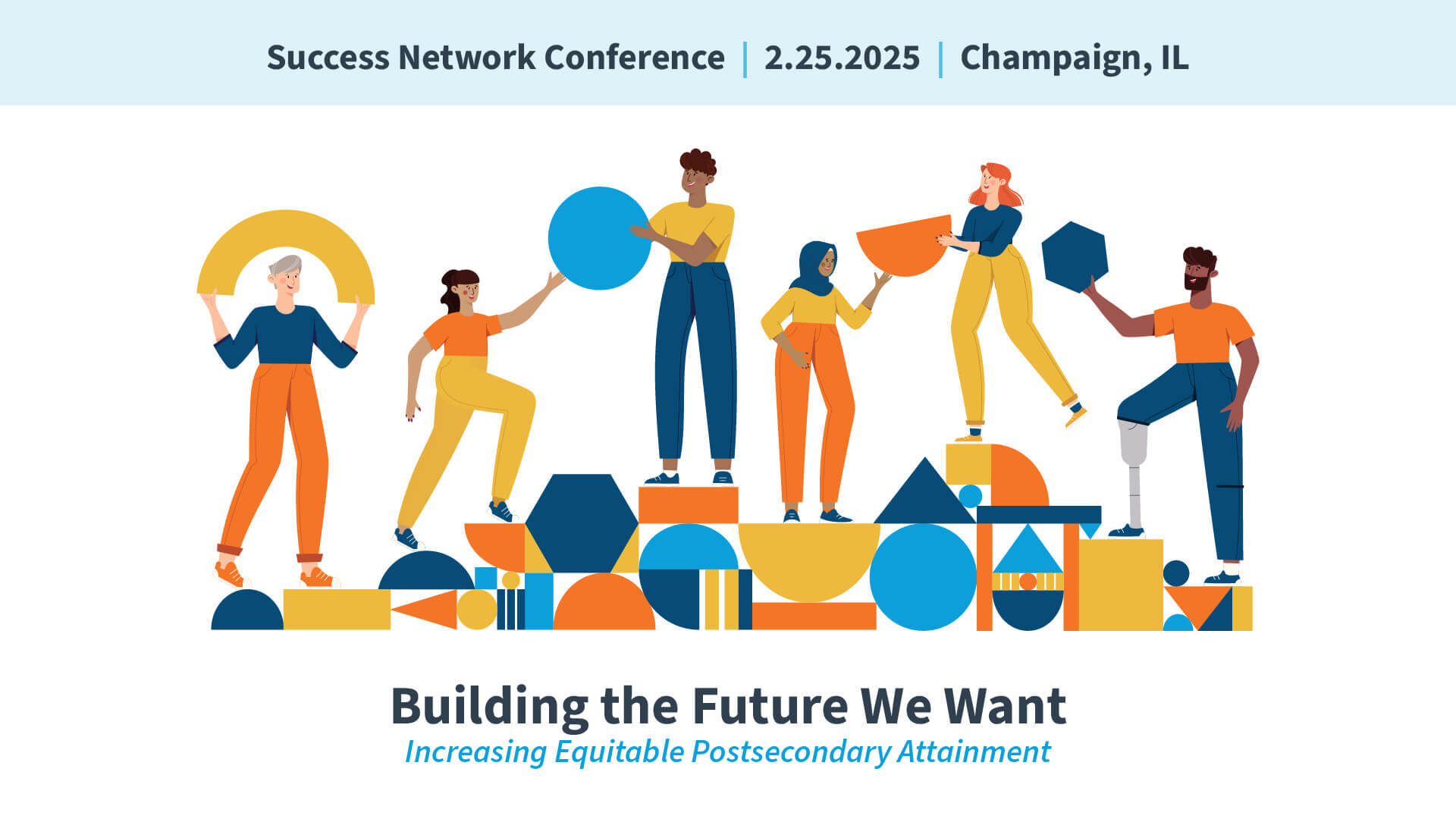
Our 12th annual conference, themed Building the Future We Want: Increasing Equitable Postsecondary Attainment, was held on Tuesday, February 25, 2025, at the I Hotel & Illinois Conference Center in Champaign, Illinois. Find the session resources and select recordings below.
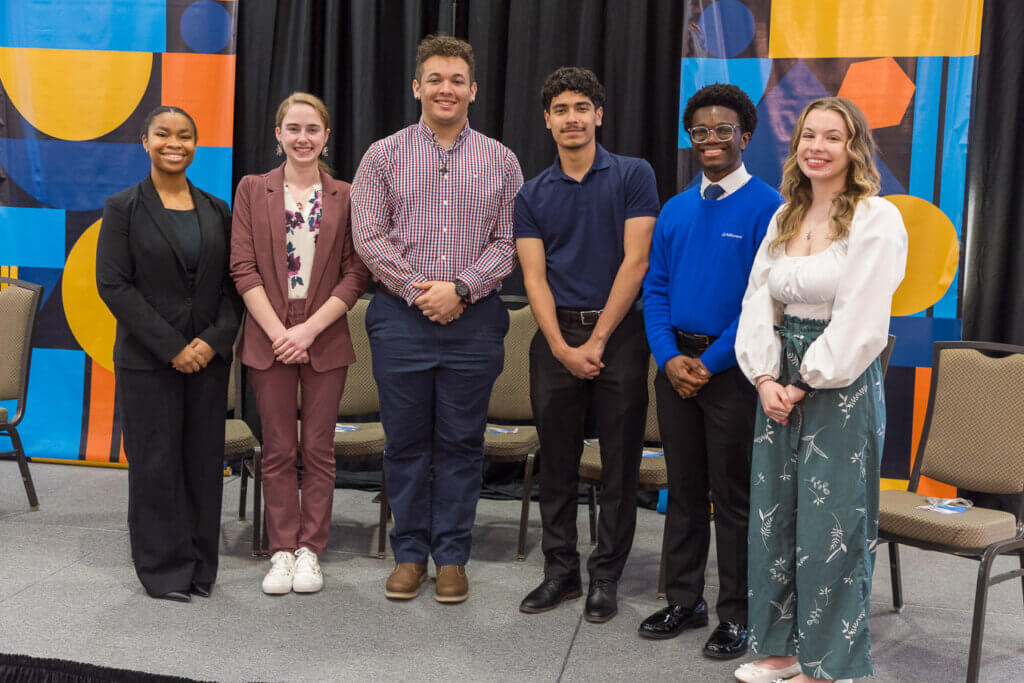
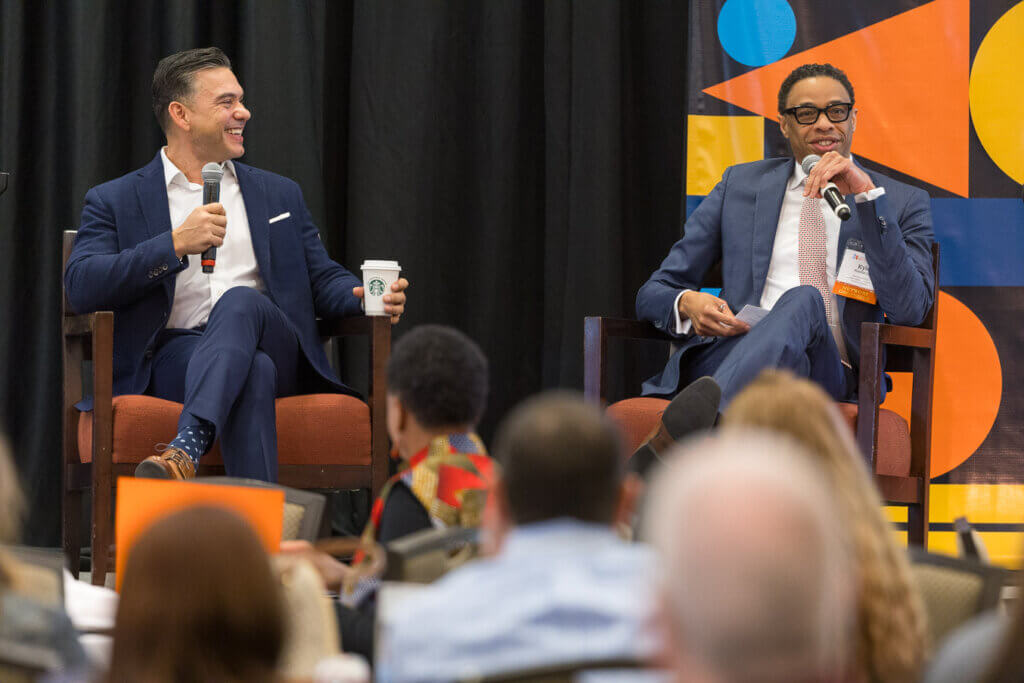
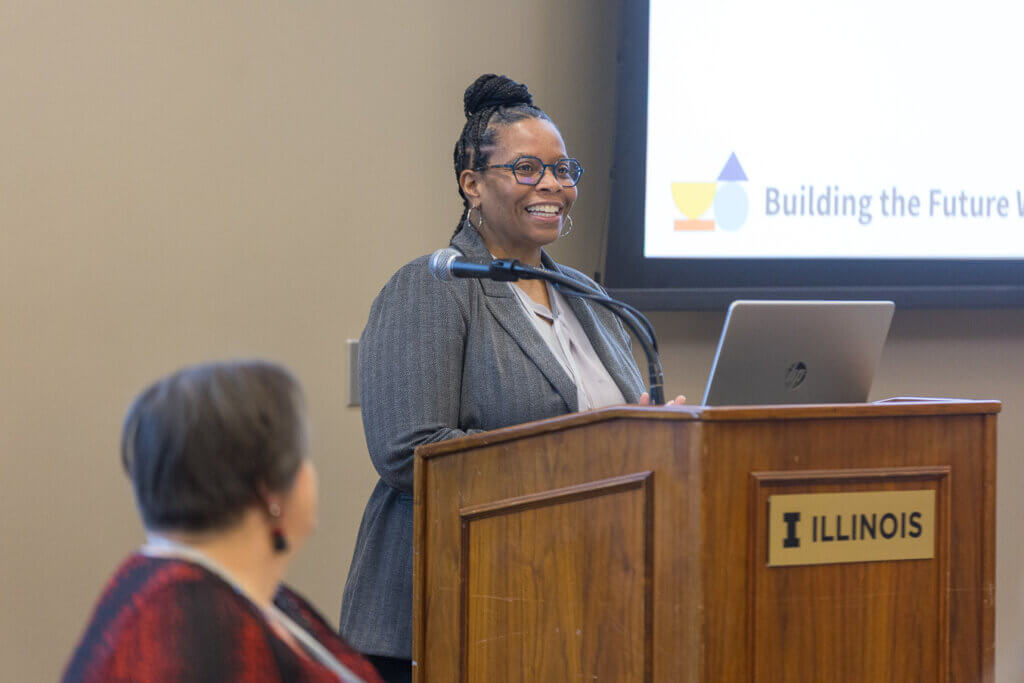
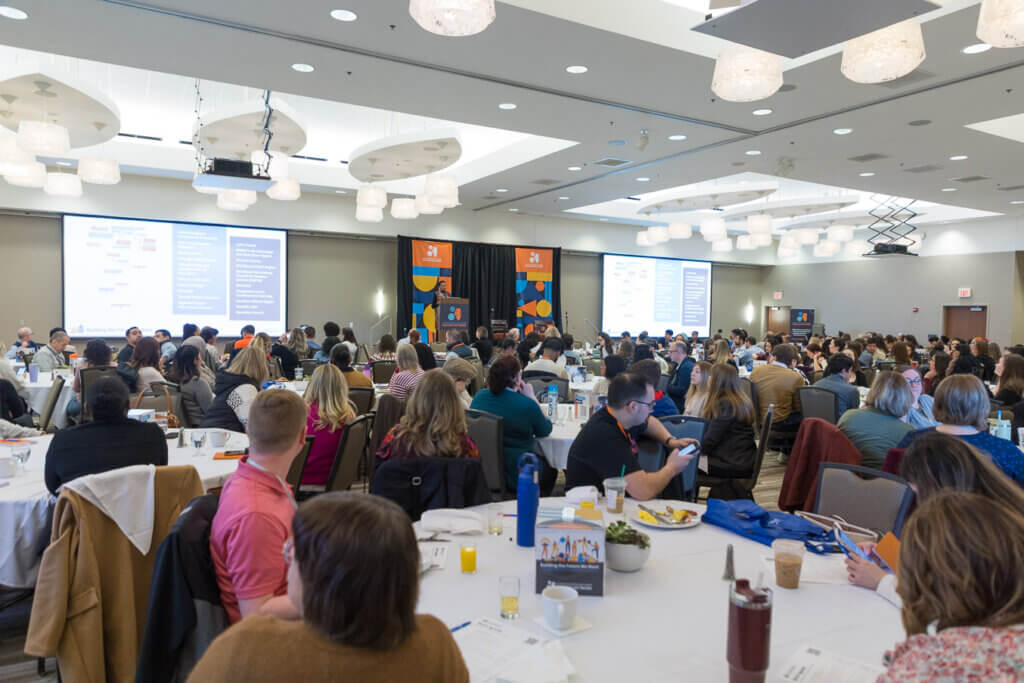
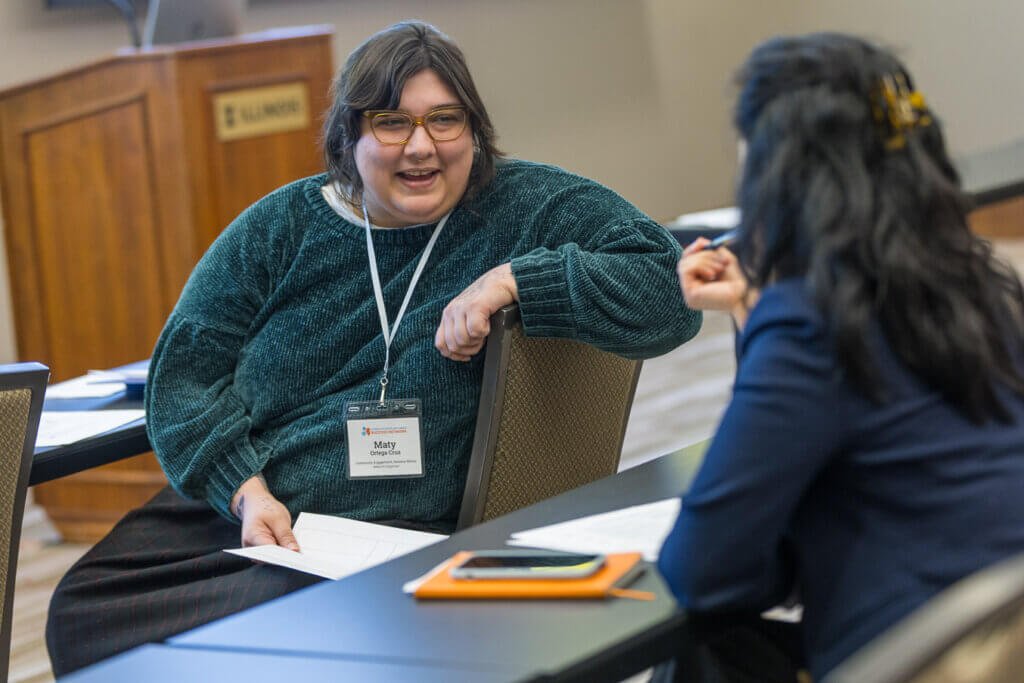
Keynote speaker Wil del Pilar, PhD, Senior Vice President, EdTrust, will explore systemic opportunity gaps affecting students of color and students from low-income communities in Illinois, using data-driven insights to highlight trends and inform actionable solutions at institutional, state, and federal levels. Following his remarks, he will have a conversation with Kyle Westbrook, PhD, Executive Director of Education Systems Center at NIU, to discuss equity-centered practices to advance postsecondary attainment. Plus, Edith Njuguna, Director of the Illinois Education and Career Success Network, will share reflections on the Network’s vision for 2025 and beyond.
Join us for an insightful panel discussion with high school district leaders who are transforming how they communicate college and career pathways to students and their families. Learn about their innovative approaches, proven strategies, and effective tools that help students make informed decisions about their future, then ask your questions on ways to enhance engagement and support students on their journey to college and career success.
Join an experienced panel to learn about best practices and initiatives in Illinois that support degree completion for our ‘some college, no credential’ learners. It is critical that higher education help bridge the gap for this population, which is quite large and growing in Illinois. Panel members include representatives from four-year institutions, community college adult re-entry (transfer and workforce development) program advisors, and students who returned to college to complete their degrees.
In this interactive session, participate in an activity using Lego building blocks to talk about concepts of diversity, equity, and inclusion and how they apply to work in higher education through a constructivist lens. A constructivist approach suggests that learning is a continual process of meaning making; it is how individuals make sense of their experiences (Amineh & Asl, 2015). Join us to learn a method for engaging colleagues and students in meaningful conversation.
Participate in an interactive session that delves into the interrelated issues surrounding chronic absenteeism. Explore effective strategies and resources to address this challenge and engage in a facilitated discussion where you can share your insights and learn from others. This crucial topic requires the support of all community stakeholders to ensure our students thrive.
In this interactive workshop, delve into the systemic opportunity gaps impacting students in Illinois. Explore how to use data to understand the interplay of factors contributing to disparities in postsecondary success. Then, analyze data to identify disparities across demographic groups and geographic locations within the state and consider data-driven strategies to advocate for equitable educational policies and practices.
An employer panel representing diverse industries will discuss strategies for supporting work-based learning in high schools, including how employers can foster meaningful experiences, partner with schools, serve as mentors, and benefit from engaging with the future workforce. By hearing directly from employers, participants will gain a clearer understanding of how to build mutually beneficial relationships that prepare students for college and career.
Key to accelerating equitable success is effective policy that can drive improved access to quality college and career preparation opportunities throughout the P-20 and workforce spectrum. Learn about recent policy changes and emerging priorities that shape how partners across Illinois can serve their communities to achieve more equitable outcomes in secondary, postsecondary, and beyond.
Discover how Crete-Monee High School’s grow-your-own teaching program is equipping students to return as change agents in their community, challenging the negative educational outcomes for students from marginalized communities. Through transparent reflections on successes and lessons learned, this session will cover essential recruitment strategies, innovative college and school partnerships, and more. Explore how a 9–12 institution serving over 1,450 students across four diverse communities is paving the way for a brighter educational future. The strategies discussed in this session can be used in planning pathways outside of education.
To support the design, implementation, evaluation, and continuous improvement of college and career pathways and work-based learning, we’ll explore the Scaling Work-Based Learning: Quality Criteria for Continuous Improvement and Equity and Quality Criteria for College and Career Pathways Implementation resources and learn how they are applied in practice. Then engage in a self-assessment to evaluate your efforts in ensuring equitable access to high-quality pathways.
The Early Childhood Access Consortium for Equity (ECACE) was created to address a shortage of early educators and a need for equitable access to seamless higher education pathways designed to support working adults in the field of early childhood education. Key to dismantling the barriers to higher education has been the ECACE scholarship, the wraparound student supports, and the higher education navigators employed within regionally based Child Care Resource and Referral Agencies across the state. This session will provide an opportunity to hear from state advocates on the program’s success and from local leaders who will discuss how the cross-sector work of ECACE is accelerating access, persistence, and completion of degrees and credentials for working adults in the early childhood education and care field.
Join us for an engaging and informative session on the Illinois Postsecondary and Career Expectations (PaCE) framework, a comprehensive guide designed to prepare students for life beyond high school. This session will provide educators, counselors, and administrators with a thorough understanding of the framework’s components, implementation strategies, and the benefits it offers to students.
At a local level, workforce development is best addressed when education systems and the business community are working together and have clearly defined goals. High-quality education for all students is critical to American business and our economy. Engaging industry partners in education allows students to explore and experience various career pathways and develop essential critical skills. Learn about best practices for sustainable educator/employer career-connected programs and relationships that you can implement in your community.
Researchers will share trends in post-pandemic outcomes and district strategies related to recovery. Learn specific strategies implemented by diverse districts to tackle their unique challenges and address equity issues.
Discover how Districts 214, 211, and 220, in partnership with Harper College, have fostered collaboration to advance dual credit and transitional instruction initiatives. This dynamic panel of secondary and postsecondary representatives will share their journey, including the processes, systems, and relationships that have propelled their work forward. Topics include strategies to build strong partnerships between high school instructors and college faculty; insights into obstacles and lessons learned; approaches to addressing misalignment in transitional instruction; and best practices for dual credit course selection, teacher credentialing, and balancing core versus CTE offerings.
In this student-led session, members of the Success Network’s Student Advisory Council will discuss how they engaged their peers in surveys about College and Career Pathway Endorsements currency and Career and Technical Education (CTE) opportunities to amplify student voice and advocate for their peers. Learn about the students’ processes, key insights from their surveys, and their perspectives on offerings at their schools.
Explore the potential of dual credit partnerships in driving student success and boosting enrollment as we discuss proven strategies for fostering effective collaborations between high schools and higher education institutions. Learn how these partnerships empower high school students to earn college credit while serving as a powerful enrollment growth tool. Gain insights into best practices, real-world success stories, and actionable steps to build or enhance dual credit programs, ensuring mutual benefits for both institutions and students.
This session will introduce the Rural Illinois CTE Project and review in-depth research done with rural school districts across Illinois on the highlights and challenges of their Career and Technical Education (CTE) programming. The session will focus on key findings across all districts and discuss specific recommendations for supporting strong rural CTE efforts. After discussing the research, participants from small and rural school districts will be given an opportunity to share their perspectives and offer suggestions for policy advocacy.
Learn about the Adequate and Equitable Public University Funding Formula (AEF) and dive into the evidence-based research underlying the formula that seeks to improve enrollment, persistence, and outcomes for college students in Illinois.
Learn how school districts can use longitudinal data to increase their impact. Concepts include the power of incremental improvement, goal setting, and approaches to measuring student growth and linking it to long-term success. The session will include an overview of data tools for tracking performance and a discussion about the future of longitudinal data in Illinois.
The FAFSA has undergone significant changes due to the FAFSA Simplification Act. Join us to learn how you can assist students and families in completing the 2025–26 application. Receive the most up-to-date information from the Department of Education and find out how ISAC is leading the way in providing resources and support for students navigating the financial aid process.